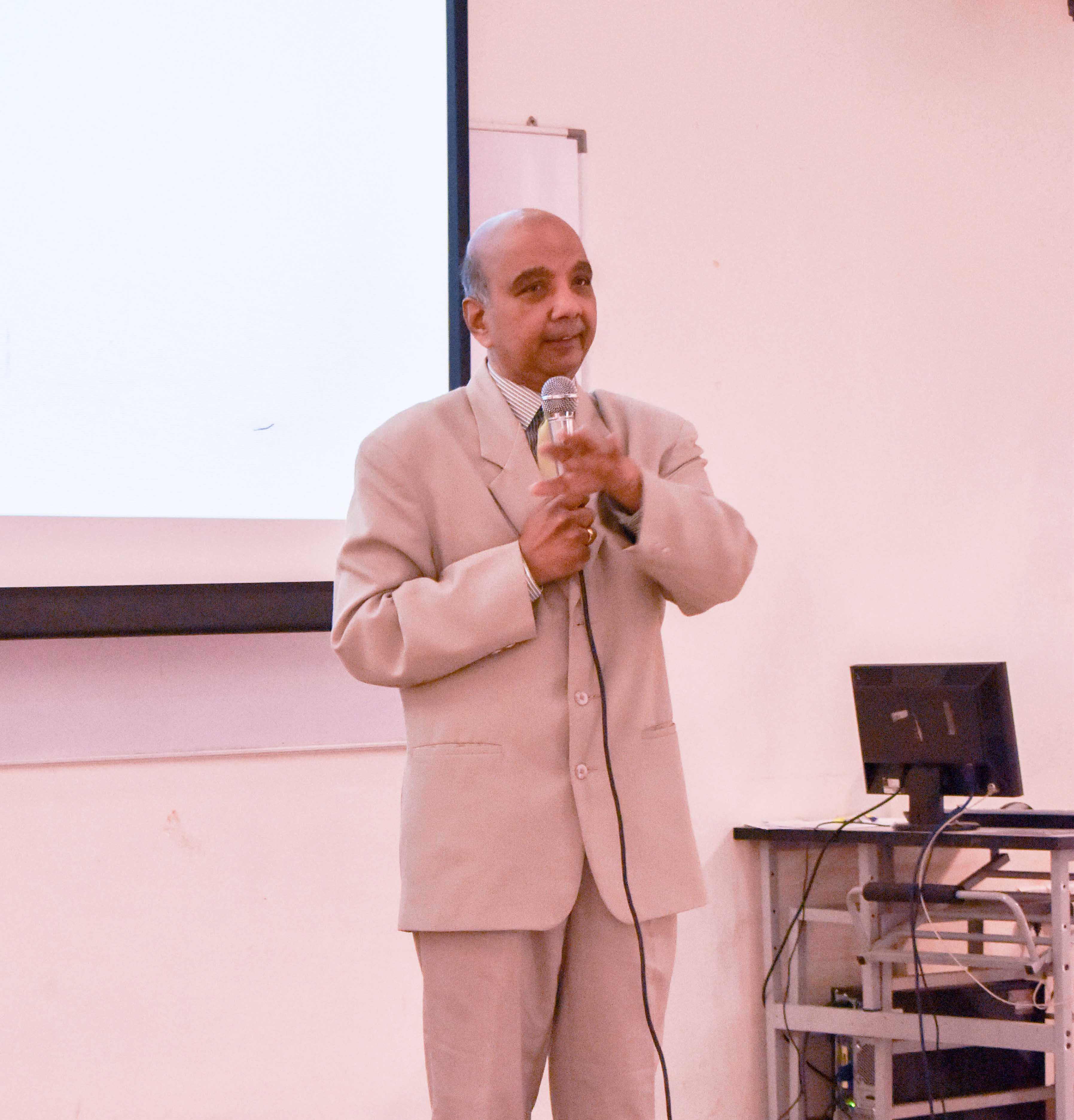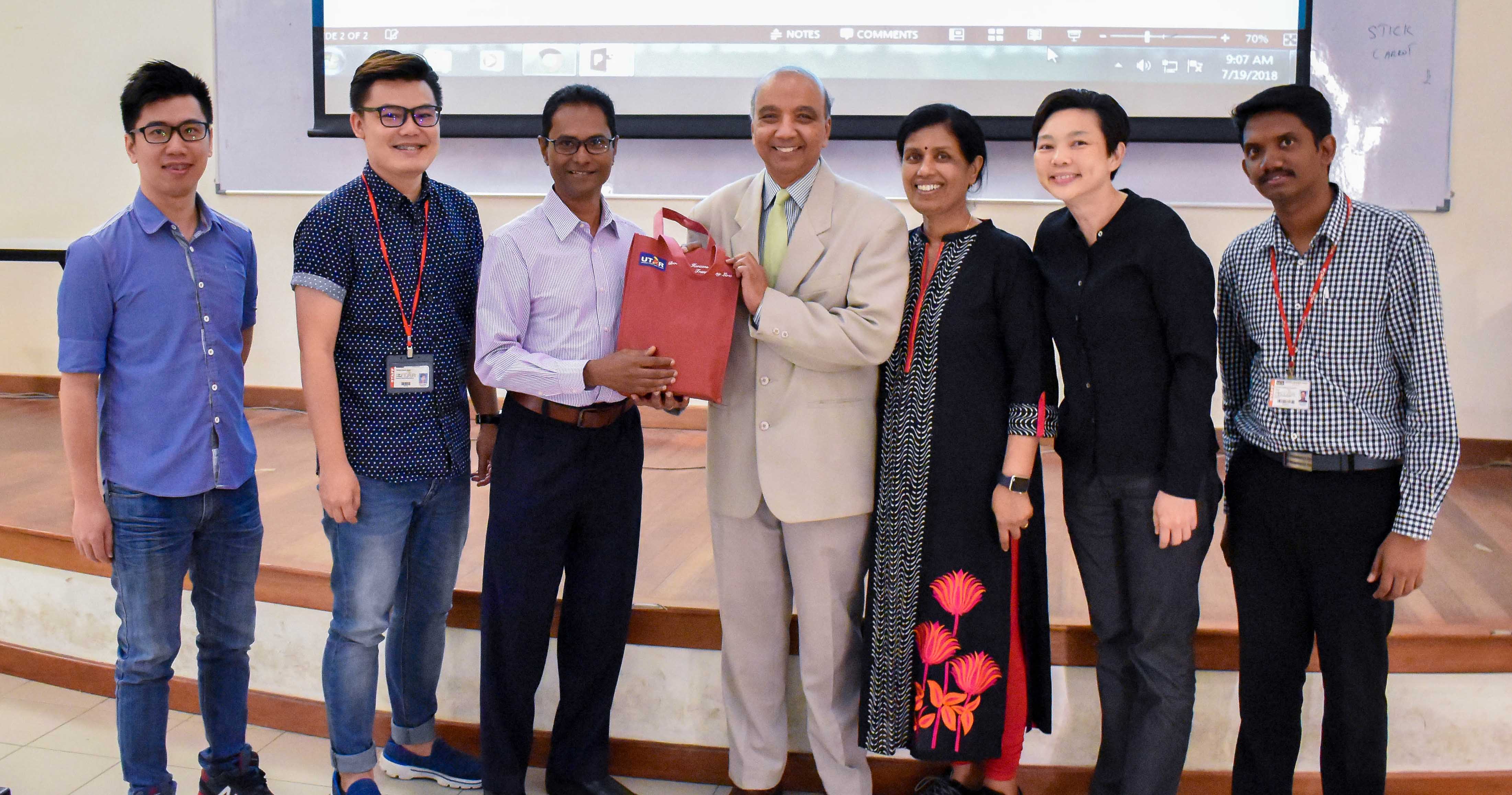

Prof Prabha explaining his research
It was a fresh perspective for the participants when invited speaker Prof Prabha N. Unnithan from Colorado State University, shared how the society is adapting to the legalisation of marijuana in the United States of America (USA), particularly in the state of Colorado. The talk titled “Post-Legalisation Drug Education” was organised by the Faculty of Arts and Social Science (FAS) on 19 July 2018 at Kampar Campus.
The objective of the talk was to enable participants to understand the current trends in research and gain exposure to research issues. On that note, participants benefitted when Prof Prabha discussed the research that he and his team conducted in order to assess the content of the “Good to Know Campaign” utilising conceptual criteria derived from the drug education research.
He first gave an overview of the state of Colorado and informed the participants that Colorado is among the many states where the use of marijuana is legalised. In fact, he shared that marijuana which can also be referred to as ganja, cannabis or indica, was initially legal for several decades in Colorado, before it became illegal in 1917 and a felony in 1929. Since then, he mentioned that there were various efforts taken to decriminalise cannabis and to seek approval for medical purposes, which eventually was passed in 2000. Then in 2012, Prof Prabha mentioned that recreational use of marijuana was legalised and would be taxed and regulated similarly to alcohol and tobacco.
In ensuring that the public is cautious of marijuana usage, the Colorado Department of Public Health and Environment (CDPHE) and Cactus Advertising agency developed the first public communication campaign, known as “Good to Know Campaign”, to educate the public about the safe and legal use of marijuana. He explained that the campaign uses billboards, newspaper advertisements, television public service announcements, radio, websites and social media to convey the important message to the public.
He explained that the research used content analysis of textual and visual materials generated by the campaign to assess how communication on the topic is composed, linguistic structures used and frames employed. He also mentioned that the research was based on three literatures, which focused on anti-drug efforts, tobacco prevention and social marketing. The research found five major themes that were successful in the campaign, which were specified and targeted to a segmented audience; maximized potential for exposure using multiple channels; attention-grabbing and memorable; informative and promotes behavioural changes; and uses research to learn beliefs, knowledge and attitudes of target audiences.
On the five themes that were used in the campaign, the research proven that audience segmentation was done on purpose and that social media was targeted to the youth. Despite the multiple channels used, attention-grabbing content and informative content, findings from the research showed that behavioural change was not substantial and that the campaign does not use audience research.
From the research presented by Prof Prabha, participants understood the practical uses of the research in helping government in educating the public, and in this case, on the use of legalised marijuana. Apart from gaining interesting insights, participants had the opportunity to personally seek advice from Prof Prabha about their own research projects. The talk ended with a souvenir presentation by FAS Head of Programme for PhD (Social Science) Dr Gerard Sagaya Raj A Rajoo to Prof Prabha.
Apart from giving the talk, Prof Prabha, who is also the External Examiner for FAS Postgraduate Programmes visited FAS to review the syllabuses. A discussion was held to ensure neutrality in the evaluation of academic standards and that the programmes are benchmarked against international standards.

Dr Gerard (third from left) presenting a token of appreciation to Prof Prabha (centre) while other staff look on
© 2019 UNIVERSITI TUNKU ABDUL RAHMAN DU012(A).
Wholly owned by UTAR Education Foundation Co. No. 578227-M LEGAL STATEMENT TERM OF USAGE PRIVACY NOTICE